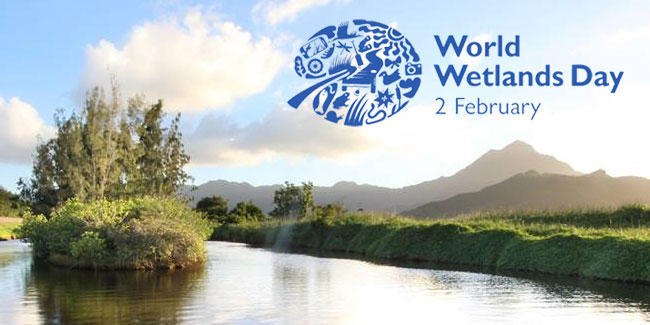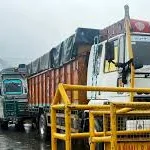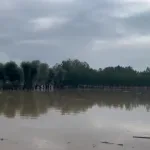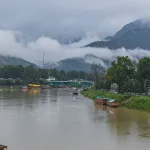Every year on February 2, the world comes together to celebrate World Wetlands Day, a day dedicated to raising global awareness about the vital role of wetlands in sustaining life on Earth. This date marks the anniversary of the Convention on Wetlands (Ramsar Convention) signed in Iran on 2 February 1971, a global treaty dedicated to wetland protection.
This year’s theme for world wetlands day is “Protecting Wetlands for Our Common Future,” emphasizing the urgent need to safeguard these critical ecosystems for the countless benefits or ecosystem services that they provide humanity. These indispensable ecosystems vital for biodiversity, climate regulation, water security and flood mitigation face unchecked urban encroachments, pollution and poor enforcement of conservation policies. While policies provide a foundation for wetland conservation, their implementation is hampered by weak enforcement, pollution and unscientific restoration practices. World Wetlands Day is the ideal time to raise national and global awareness about wetlands in order to reverse their rapid loss and encourage actions to conserve and restore them.
Over 35% of wetlands have been lost globally since 1970 due to urbanization, agriculture, and industrial development (Global Wetland Outlook).This decline reduces the natural ability to manage and store water. Wetland loss exacerbates water scarcity by disrupting hydrological cycles, reducing groundwater recharge, and increasing the risk of drought. The largest water consuming sector, agriculture is responsible for around 70% of global freshwater withdrawals and despite increasing competition in demand for water, agriculture withdrawals continue to increase (FAO, 2020).
In large areas of Asia, northern Africa, Australia, and the America agriculture intensification disproportionality drives high water stress affecting people and wetlands (FAO, 2020). Water shortage emerges as top environmental risk for India and the world over next two years. India faces a critical challenge as water supply shortages emerge as the most severe risk confronting the country over the next two years (2025–2027), the World Economic Forum (WEF) warned in a new report released on January 15, 2025. The number of countries identifying water supply shortages as a top-five risk has surged from seven in 2024 to 27 in 2025, reflecting the growing global crisis and the increasing significance of this issue.
As of August 2024, India has designated 85 wetlands as Ramsar Sites (internationally recognized under the Ramsar Convention for their ecological importance). Despite many wetlands in India being designated as Ramsar Sites degradation continues due to weak enforcement, land use changes, waste disposal in wetlands and lack of awareness about their ecological importance. Agriculture, the most wide-spread form of land-use change has damaged more than half of Wetlands of International Importance via drainage and infilling. The high demand for rice from growing population has resulted in the conversion of wetlands to rice paddies and the increased use of fertilizers, ultimately reducing the ability of wetlands to store carbon.
Consequently, emissions from wetlands of three potent greenhouse gases (GHGs) viz Methane (CH4), Nitrous oxide (N2O), and Carbon dioxide (CO2) have increased. Besides this rapid urban expansion often leads to the encroachment of wetlands for housing, infrastructure, and industrial projects. India has lost nearly one-third of its natural wetlands to urbanisation, agricultural expansion and pollution over the last four decades, Wetlands International South Asia (WISA). Wetlands, which act as natural sponges by absorbing excess water and reducing flood intensity have been disappearing three times faster than forests. The shrinking wetlands of the Union Territory (UT) of Jammu and Kashmir played a significant role in exacerbating the devastating floods of 2014 and served as a wake-up call about the environmental consequences of wetland loss.
Despite the introduction of the Wetlands (Conservation and Management) Rules in 2010 and their revision in 2017, India’s wetlands continue to degrade at an alarming rate. To ensure the wise use of wetlands in line with the Convention on Wetlands, and to deliver on the 2030 agenda for sustainable development and the UN Sustainable Development Goals (SDGs), there is a need to share knowledge regarding the impacts of agriculture on wetlands, improve recognition of the importance of healthy wetlands for agriculture, and identify pathways to transform agriculture.
Effective wetland management requires strict enforcement of environmental laws and policies to protect these ecosystems from degradation. Improving management of wetlands brings health, food and water security benefits critical to the health and livelihoods of 4 billion people globally who are reliant on wetlands’ services. Transformation to sustainable agriculture is urgently required to reverse the ongoing trend of environmental degradation and to respond to climate change. This should include more efficient use of natural resources and reduced pressure on wetlands, through better policies, institutional change, and support for the adoption of sustainable farming. Immediate action, combining scientific, policy-driven, and community-based approaches, is needed to address this environmental challenge
Protecting and restoring these ecosystems is essential not only for water security but also for sustaining biodiversity, livelihoods, and resilience against climate change. Wetlands are more than water bodies; they are lifelines that sustain human well-being and environmental health. Let’s honour the vital role of wetlands by committing to their preservation, not just today, but every day. Because when wetlands thrive, so does humanity.
(Author holds Master’s in Environmental Science from Kashmir University. She teaches at Kashmir Harvard Higher Secondary Institute, Habak Naseem Bagh Srinagar. The author can be mailed at [email protected])








